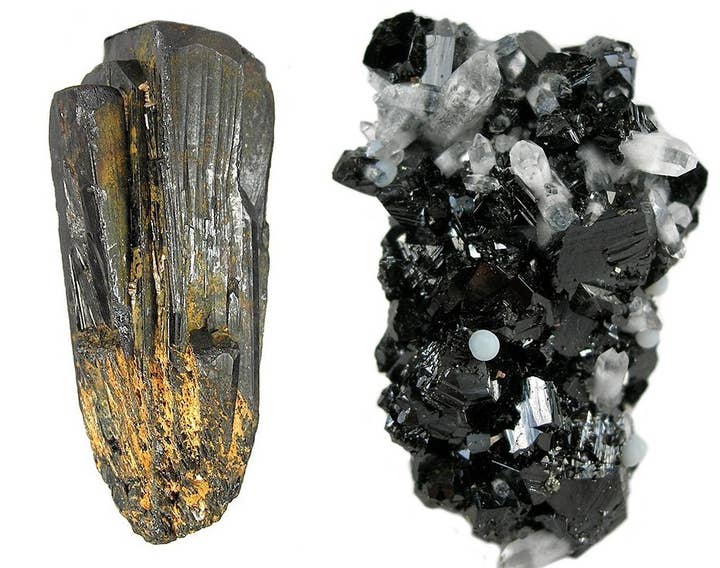Conflict minerals: Which gaming companies may have funded human rights abuses in 2019?
Apple once more the most diligent, most other companies make minimal improvement, and Valve is silent for second year running
Every year, US tech companies are required to report with the Securities and Exchange Commission on their efforts to ensure that the materials used in their products didn't originate in areas of the world where that business may have inadvertently funded human rights abuses. And every year, reading through these reports means drowning in a veritable flood of disclaimers. Here are a few examples from 2019's reports:
"Apple does not have sufficient information to conclusively determine the countries of origin of the [conflict minerals] in all of its products."
"[Facebook does] not have a direct relationship with any of the reported smelters and refiners and relied upon third-party organizations...to review upstream information including the mine or location of origin of necessary conflict minerals."
"As the purchaser, not the manufacturer, of the products we sell, [Activision-Blizzard is] many steps removed from the mining of [conflict minerals]."
In Microsoft's case, we even get a visual aid:

Effectively, these major tech companies are trying to distance themselves from the harsh reality that the minerals used to make their gaming consoles, accessories, phones, and other tech products might originate in places where armed conflict and human rights abuses are often tied to and supported by the mining, transport, and sale of those minerals. As we'll demonstrate in this report, some companies manage to be more diligent than others at doing their best to identify where these minerals originate and ensuring their supply chain is free of abuses. But ultimately, not a single company in this article is able to guarantee that its products are conflict-free.
This is our sixth year covering the use of conflict minerals in the games industry, and it comes at a time when such examination is particularly relevant. Two major gaming hardware companies are preparing to launch new consoles in 2020, and COVID-19 has resulted in numerous disruptions -- visible and invisible -- to supply chains globally. Though this report covers data from last year when none of these impacts had yet been felt, the past diligence (or lack thereof) of these companies will surely inform what we can expect of them going into the next generation.
You can view reports from previous years at the links below:
What are conflict minerals?
"Conflict minerals" refers to a number of minerals mined in conflict zones around the world for which the acquisition, sale, transport, or movement of which often ultimately funds or perpetuates the conflict, deliberately or not. This could take a number of forms -- it could be that slave labor is used to mine or transport these minerals, or that corruption or bribery could be involved in the operations in some way, or simply that armed groups are directly or indirectly funded by their sale. Generally, this concern applies to minerals sourced in the Democratic Republic of Congo and surrounding countries, where armed conflict, violence, and exploitation often impacts mining and supply operations.
Though there are a number of other conflict minerals, the four most common -- referred to as 3TG -- are tungsten, tin, tantalum, and gold, and all are frequently found in electronics and gaming hardware. Fortunately, there are a number of ethical sources for these minerals that don't come near armed groups or illicit activities, as well as increasing capabilities to use minerals from scrap or recycled sources.
However, as unfortunate as those heavy disclaimers in the opening may be, they're also true. Mineral supply chains are extremely complex, with minerals often traveling from their mine of origin through multiple different smelters, refiners, and suppliers before finally reaching their destination.
And even if the origins of minerals can be accurately discerned, it's not as simple as refusing to use minerals from areas where armed conflict is occurring. The DRC and its bordering countries are prime sources for 3TG, and there are a number of individuals, groups, and communities conducting or supported by legitimate business in the area that would see considerable harm if everyone stopped sourcing minerals from them entirely tomorrow.
So how can companies ensure ethical sourcing?
Currently, the complexity of mineral supply chains means that no matter what, there's always going to be at least some level of uncertainty as to where materials used to make tech products come from. But US companies are required to do a certain amount of due diligence.
Under the Dodd-Frank Act, all publicly traded companies in the United States are required to file an annual report with the SEC that demonstrates their efforts to track down the sources of the 3TGs used in their products. Though some companies include more information than others, there are a few commonplace elements in each report that can help identify who is putting in the work to ensure ethical sourcing.
Essentially, there are two main questions companies need to answer with these filings. The first is whether or not any of the 3TGs used in their products originated in an area where armed conflict is prevalent. If they did, then the second question is whether or not that armed conflict or the abuses perpetuated by it intersects with their supply chain in any way.
Both questions are generally answered through a company-conducted survey of its suppliers, who are asked to identify and provide certain information about the smelters and refiners (SORs) further upstream in their supply chains. Most companies use a Conflict Minerals Reporting Template (CMRT), which is a standardized form created by the Responsible Minerals Initiative (RMI) to conduct these surveys.
Aside from gathering information about the location of SORs and where their minerals are sourced from, the CMRT survey also checks whether the SORs have undergone the Responsible Minerals Assurance Process (RMAP), a procedure set up by the RMI that effectively whitelists the SOR and, via a third party audit, gives as much assurance as can reasonably be given that the supply line was not touched by armed conflict or related abuses.
However, there's no requirement that upstream supplies fill out the survey at all, except whatever requirements individual companies might impose. Some companies will take steps to enforce both survey completion as well as RMAP compliance, but others will continue to do business, year after year, with a number of suppliers and SORs that continue to turn in incomplete surveys, fill in information inaccurately, or ignore them entirely.
For years now we've wanted to compile the percentage of each's company's SORs that RMAP-conformant into easy-to-digest charts so we could compare companies against one another, but it's impossible to know what percentage of each company's supply chain is compliant when companies like Activision-Blizzard, Microsoft, and Sony don't know how many SORs they have in their supply chains, and companies like Facebook and Google seem to know but refuse to explicitly say that they're certain.
As we'll see below, even the most diligent companies who mandate survey completion and RMAP compliance as well as perform further diligence measures to keep conflict out of their supply lines still find that they may have inadvertently funded human rights abuses multiple times a year. What, then, can be said about companies who repeatedly shrug their shoulders when asked where their minerals came from?
Words and acronyms to know
When trying to parse issues surrounding conflict minerals, there are a number of terms and acronyms used that may be unfamiliar. Here's a quick overview of the ones seen frequently in this report:
- 3TG - Tin, tungsten, tantalum, and gold, the four most common conflict minerals.
- Covered Country - The Democratic Republic of Congo and adjoining countries: Angola, Burundi, Central African Republic, Rwanda, South Sudan, Tanzania, Uganda, and Zambia. Minerals sourced from these countries have a higher potential of benefitting, financing, or otherwise supporting armed conflict or human rights abuses.
- CMRT - Conflict Minerals Reporting Template - A standardized reporting measure developed by the Responsible Minerals Initiative (RMI) to allow suppliers to gather and submit information about the upstream elements of their supply chains.
- RMAP - Responsible Minerals Assurance Process, a program created by the Responsible Minerals Initiative to help companies responsibly source minerals in their supply chains.
- SORs - Smelters and refiners, one of the most upstream elements in supply chains for minerals.
- Suppliers - The "middlemen" of mineral supply chains. Suppliers obtain minerals from SORs, then supply those to companies to manufacture products.
Apple
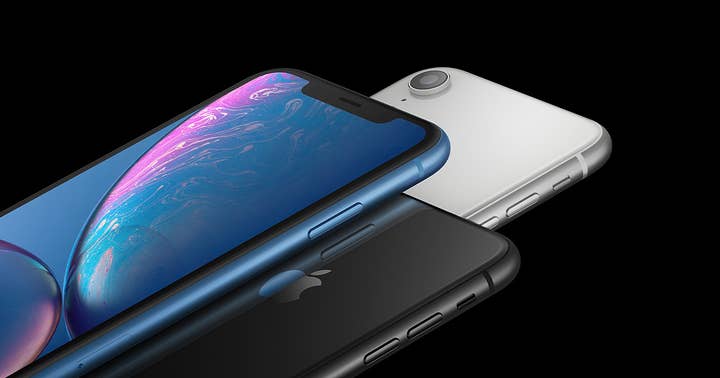
As in the last few years, we're kicking off the report on a (relatively) bright note with Apple. In 2019, Apple once again did the best of any company we looked at, seeing its fifth straight year of both a 100% survey response from its suppliers and 100% of its 267 identified SORs -- including 24 known to be directly sourcing from Covered Countries -- participating in a third-party audit program. It's a far cry from where Apple was six years ago, when only 60% of its SORs were conformant.
Apple's report states that in 2019, it directed its suppliers to remove 18 SORs from its supply chain that were unwilling to participate in an audit or did not otherwise meet the company's requirements.
In addition to having the most consistently conformant supply chain of any company we looked at, Apple also has the distinction of the most detailed report multiple years running. Its filing breaks down the company's efforts in recent years, including ongoing work to transition to using only recycled and renewable materials in its devices with 3TG prioritized, its annual strengthening and enforcing of its Supplier Code, its consistency in removing suppliers from its chain each year that are unwilling to adhere to said code, its financial support for humanitarian organizations committed to solving these issues, and its work with international organizations including the RMI to develop policies and standards for responsible sourcing.
However, the complexity of mining, smelting, and supplier operations is such that even Apple's level of diligence has thus far been unable to fully prevent corruption and other illicit activities from impacting its supply chain. Last year, Apple's SEC filing noted the company had found eight potential incidents that involved illicit activities such as bribery, corruption, or criminal activity that it couldn't entirely guarantee hadn't affected its supply chain somehow. Three of those incidents were closed by the time 2018's report was issued.
In 2019's report, the remaining five incidents from 2018 had been closed as well. But another nine in the same vein had been identified in 2019, and at this time six remain open with either investigations or corrective actions still pending. The company has not yet been able to determine whether or not any of these incidents were connected to 3TG in its own products.
This type of story is unique in Apple's report almost certainly not because every other company mentioned here has some level of diligence that Apple doesn't. It is far more likely that similar stories are playing out across every other company mentioned in this report, and Apple is merely the only one willing to disclose them.
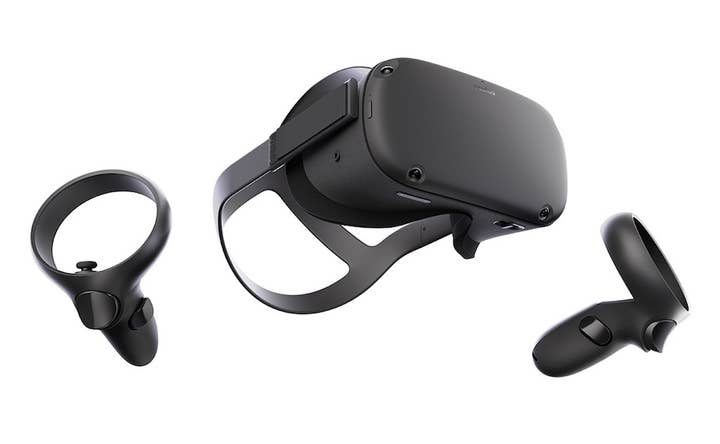
Though far less detailed than Apple's, Oculus manufacturer Facebook has also proven committed over the last several years to due diligence in its supply chain.
The company's total number of SORs dropped slightly from 252 in 2018 to 232 in 2019. 124 either did not source from a Covered Country, or sourced only from scrap or recycled sources.
Of the total 232 SORs, 230 SORs were comformant or certified with a third-party responsible sourcing program. One was listed as active, meaning it was either committed to undergoing an assessment or was currently doing so. The final smelter did not fit any of these criteria, though Facebook says a third-party organization provided information that it was sourcing exclusively from scrap or recycled sources -- bringing Facebook's percentage of conformant SORs to 100%...or at least, 100% of the SORs it says it knows about.
One note of concern in Facebook's report both last year and this year has been that it does not report on the total number of suppliers that responded to its request for information on SORs. The company does specify in its guidance that it requires suppliers to provide sourcing information by completing relevant portions of the CMRT, but as we've seen with other companies, it is possible for suppliers to turn in incomplete, contradictory, or inaccurate surveys. In these cases, it is the responsibility of the company to take steps to enforce its policies on survey return and completion.
In its filing, Facebook outlines its policy for "red flags" with suppliers based on data acquisition or engagement or information from other sources. Action steps the company may take include providing awareness training on responsible sourcing, requiring risk management plans be implemented, or disengaging from the supplier. Facebook's report does not state whether or not it disengaged with any of its suppliers for these reasons in 2019.
Activision Blizzard
In previous years, it seemed increasingly likely that Activision Blizzard would one day no longer be filing SEC reports on its mineral sourcing as its Skylanders products slowly faded into the rearview. Last year, the company only had two SORs supplying materials for certain branded products connected to Overwatch and World of Warcraft. One was conformant. Activision Blizzard was unable to determine specific details about the other, including the location from which its minerals were sourced.
This year, Activision Blizzard is still hanging in there with the same product lineup and, it seems, the exact same problem with one smelter. In 2019, the company had a 91% survey return rate -- 11 of its 12 suppliers. The remaining supplier provided a written statement stating it was operating in compliance with the SEC regarding its conflict minerals sourcing.
Based on the 11 completed surveys, Activision-Blizzard determined that only two of its suppliers were manufacturing 3TG. One sourced all its tin from a single conformant smelter.
The second supplier appears to have a similar story to the one told last year. It received its tin from an upstream supplier, which in turn stated it could not determine the identity of the facilities being used to process the materials. The upstream supplier provided a statement stating that it does not purchase any products originating from a Covered Country -- but Activision-Blizzard noted that it could not exclude the possibility those minerals did indeed originate there. And without knowing how many stops are involved in that leg of Activision Blizzard's supply chain, it's impossible to say what percentage of its SORs are actually conformant.
Unfortunately, Activision-Blizzard's policy for getting in touch with the unknown supplier appears to be identical to last year's based on its filing: keep providing information on its policies, keep encouraging self-reporting, and keep "working with" suppliers that aren't willing to fully track down and disclose information about the supply chains.
Microsoft
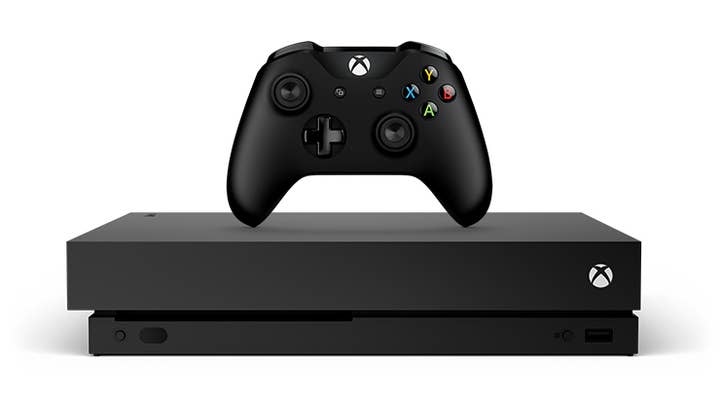
Microsoft has historically managed a near-perfect survey response rate, though its SORs have had a spotty history with conformancy. Last year, the company had a total of 41 of its 299 known SORs in various states of non-conformance, with some even reporting that they were simply "not interested" in the audits.
Fortunately, in 2020 Microsoft not only managed to up its supply return percentage from last year's 98% response rate to a full 100%, but it also appears to have taken steps to terminate relationships with non-conformant SORs as it promised it would. From its surveys, the company identified 178 suppliers that used conflict minerals, which worked with a total of 233 SORs. All but one of those SORs was conformant, including all 43 that reported sourcing from Covered Countries. This is a laudable improvement, as last year 84.6% of Microsoft's supply chain was conformant, and this year that number was up to 99.6%.
The hardware maker notes in its report that these improvements were possible due to increasing the amount of outreach it was conducting to suppliers who hadn't responded fully to their surveys, as well as an increased engagement with the RMI. As one of the few companies in this report demonstrating meaningful year-on-year improvement, we can only hope Microsoft is able to maintain its near-perfect conformance in 2020 as its supply chains become necessarily larger and more complex to ship the next console generation.
Sony
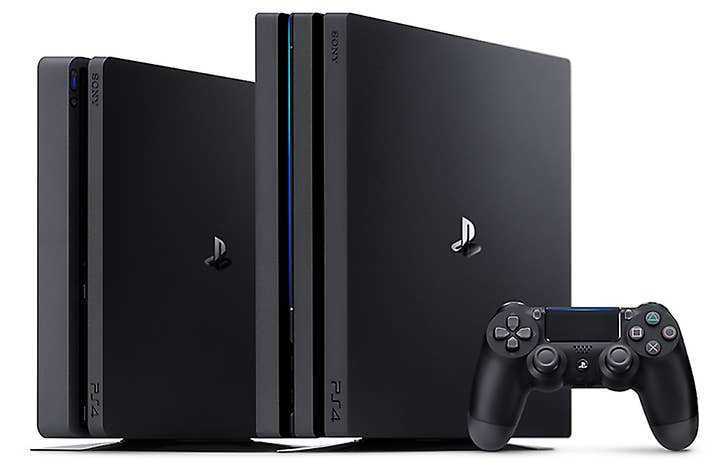
Last year, we opened our report on conflict minerals with the following paragraph:
"When Sony asked its business partners for 2018 whether their operations were funding human rights abuses, over 50 of them decided not to respond. Sony answered by saying it would "demand" a response next year -- something the company also said last year when the same thing happened, and the year before that, to no significant improvement."
Whatever Sony thinks "demand" means, it clearly isn't working, as the company has once again made little to no visible progress on ensuring ethical sourcing. Its one meaningful improvement is that for the first time since we've reported on them, Sony is now publishing a survey return rate in its SEC filing -- or at least a vague approximation of it. The company saw a survey return rate of "around 90%." In 2017, when Sony still wasn't disclosing that information, The Enough Project reported that its return rate was somewhere between 80% and 87% -- but the organization did not publish a similar 2018 report.
With data from the surveys they did get back, Sony identified a total of 326 SORs supplying it with 3TG, for which only 270 were either conformant or undergoing assessment. Sony did not identify how many of the 270 had fully completed the audit versus how many were still in the process.
Furthermore, of the 56 remaining SORs, Sony was unable to determine the location or mines of origins for 29 of them. It goes on to say that per information it receives from its direct suppliers, none of them was located in a Covered Country.
This puts the percentage of Sony's SORs that are conformant with third-party audits and sourcing requirements squarely at 82% -- which is almost exactly where it's fallen the previous two years. Though Sony's report attests it will take action to improve its sourcing by visiting suppliers in person, encouraging the assessment process, and removing SORs that are unwilling to undergo said assessment, these are the same actions it's been promising for years to, thus far, no discernible effect.
Notably, the company did not use the word "demand" in its 2019 filing.
Nintendo
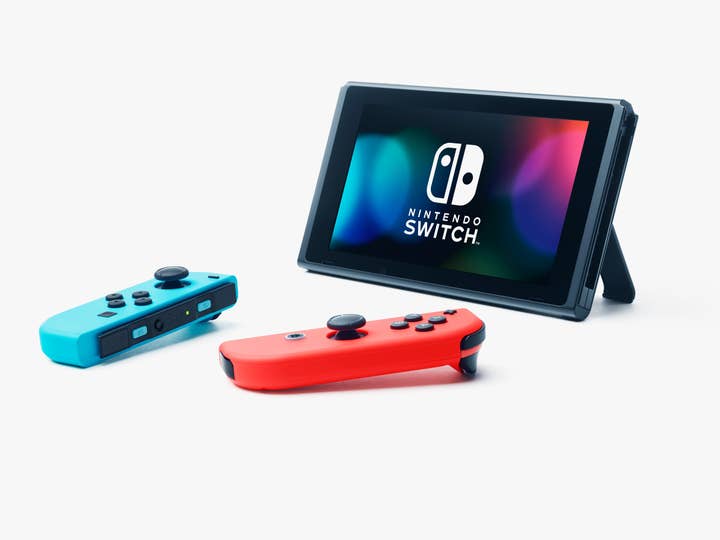
Nintendo is not publicly traded in the US, so it does not file a report with the SEC each year on its sourcing of 3TGs. However, the company does include a breakdown of its minerals sourcing in its annual Corporate Social Responsibility Reports, which are published in Japanese toward the end of June each year, with an English translation following around a month later.
Nintendo's improvements on sourcing have been incremental at best since it made an initial jump from reporting only 47% of its SORs as conformant in 2014 to 72% in 2015. By 2018, it had a 100% survey return rate, but had still only managed to ensure 79% of its SORs were conformant to RMAP standards.
According to its most recent CSR, in 2020 Nintendo had a total of 66 suppliers for 3TG. Unusually, Nintendo did not explicitly say whether all of its suppliers returned surveys this year, though its report seems to imply that they did and its 100% return rate in the past supports this.
From those surveys, suppliers identified 320 SORs, only 266 of which were conformant (83%). This is another slight improvement from previous years, though still leaves a meaningful chunk of Nintendo's supply chain in unknown territory. Nintendo does point out that following reception of these results, it made direct visits to "production partners we determined to be at high risk" to improve communication.
However, Nintendo does not say that it will cease business with SORs found to be supporting conflict. Instead, it will "ask our suppliers to make procurement changes or otherwise act towards ensuring their non-use."
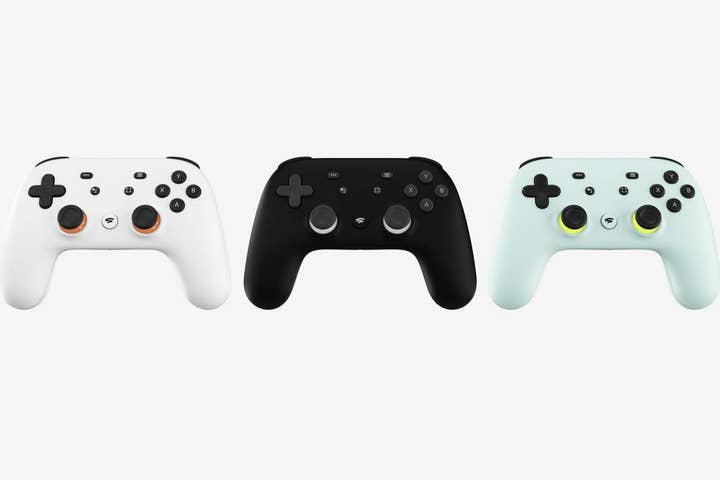
We first began reporting on Google last year with the announcement of Google Stadia. Though Google has been involved in gaming in various capacities for years now -- most visibly via Google Play and its mobile efforts -- the manufacturing of Google Chromecast Ultras and Stadia Controllers specifically for its cloud streaming service made the tech giant a necessary inclusion going forward.
It's worth noting that, as with data on companies like Apple and Sony, Google's reporting reflects the entirety of its tech production, of which Stadia Controllers and Chromecast Ultras make up a small portion. Furthermore, this report covers the entirety of 2019, and both these devices were not launched until November of last year -- though their manufacturing would have begun earlier. Nonetheless, we feel it appropriate to consider Google and other tech giants who dabble in games for these reports, as their commitment to ethical sourcing impacts every element of their tech production that uses those minerals -- including gaming.
As with its filing last year, Google unfortunately does not provide any specific information on its survey response rate, though it does note that it was "high." Once again, some of Google's suppliers indicated they were still in the process of gathering information with which to complete the survey. The company does not indicate if any suppliers were unresponsive or refused to complete it, noting that its plan in the case of unresponsive suppliers is to make at least three attempts to contact them.
Based on information from the completed surveys, Google reports a total of 314 SORs, 264 of which were considered conformant and five of which were undergoing the process to become conformant (85.7%). Of the remaining 45 SORs, Google says it has identified them as "not sourcing from the Covered Countries (or have no reason to believe they are sourcing from the Covered Countries)."
Google mentions in its risk assessment that for the third consecutive year that it has gone through an independent third party to assess all of its identified smelters and identify risks, even those who have not undergone the RMAP. This assessment is what led to Google's belief that its 45 unaudited smelters were not located in Covered Countries, and Google also states that the process prompted additional direct follow-ups with its suppliers and SORs, further opening lines of communication. Finally, Google says that it has shared its findings on these SORs with the RMI to disseminate to its members.
All that said, 14.3% is still a considerable portion of Google's supply chain that, for whatever reason, is avoiding the third-party audit process that's the most transparent gauge we currently have of determining whether or not 3TGs are being sourced ethically, leaving the company room to meaningfully improve in future years.
HTC
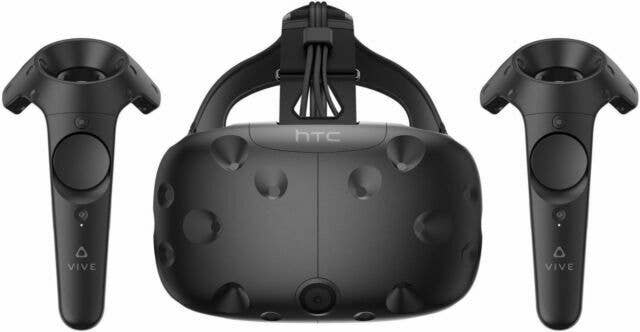
HTC, like Nintendo, is not publicly traded in the United States. Unlike Nintendo, it does not publish information about its mineral sourcing in English each year.
However, when we first began reporting on the VR headset maker last year, the company responded by sharing that its policy was not to source any of its minerals from Covered Countries at all -- not even from conformant SORs. This policy could be considered controversial, however, as we detailed last year that groups doing legitimate business in these regions have spoken out about the harmful impact of avoiding Covered Countries entirely.
Like most other companies in this report, HTC has a code of conduct for its suppliers and conducts a survey each year to ensure that this policy is carried out, though HTC did not share the results of that survey or any info on its suppliers, SORs, or their conformancy.
GamesIndustry.biz reached out to HTC for comment again this year, and once again the company did not share specifics on its survey results, the number of SORs in its supply chain, or how many of those suppliers were conformant. We were instead directed to the company's statement on the 2015 Modern Slavery Act and its Corporate Responsibility page, which outlines similar information to we received last year, including the following statement on its policy for sourcing minerals from Covered Countries:
"Since traceability remains difficult, HTC has stopped sourcing minerals from the Democratic Republic of Congo and the Central African region altogether," it reads. "As a condition of doing business with HTC, our suppliers must acknowledge and agree to our responsible sourcing policy. We review our suppliers' mineral sourcing practices through our supplier audit program."
Valve
Valve has now been manufacturing and selling its Valve Index headsets for over a year now, not to mention other electronic products it has produced in the past such as the Steam Link and Steam Controller.
For the second year running, Valve has not responded to multiple requests for information on its mineral sourcing procedures or policies, nor has it provided any comment at all on the subject of conflict minerals.
Logitech
For the first time this year, we opted to include three gaming peripheral manufacturers in our report on conflict minerals sourcing: Logitech, Turtle Beach, and Razer.
According to its filing, Logitech uses 3TG in its gaming keyboards, mice, headsets, and sim products like steering wheels and fight sticks. To supply those minerals, the company has a total of 283 suppliers, all of which returned their CMRT surveys in 2019.
Of these, Logitech reports that 269 were conformant with RMAP, and another four were in the process of becoming conformant (96.5%), leaving ten non-conformant. Logitech does go a step farther than most and offers a further breakdown, saying that seven of these SORs were in the process of ceasing operation entirely (and thus unable to engage with RMAP). Unfortunately, the status of the remaining three was undetermined.
Logitech's plan for full conformance looks a lot like that of most other companies we examined: maintain existing procedures, encourage SORs to participate in audit programs, and continue supporting RMI. That said, a look at previous reports reveals that back in 2017, Logitech had a whopping 45 of its 304 SORs not yet participating in third-party programs. By 2018, it was able to reduce that to 13 of 269. Though that number only dropped slightly in 2019, it appears that the peripheral maker is one of just a few companies in this report that has recently proven capable of making meaningful progress.
Turtle Beach
Like Logitech, Turtle Beach uses 3TGs in its peripherals, including headsets, mice, keyboards, and mousepads. Also like Logitech, Turtle Beach had a 100% survey response rate from its suppliers.
These surveys revealed a total of 265 SORs in Turtle Beach's supply chain processing 3TG, of which 255 were conformant with third-party auditing programs (96.2%). Unusually, while the other SEC filings we looked into often contain full lists of all SORs reported as in the company's supply chain regardless of conformance, Turtle Beach specifically only lists the ten SORs that were non-conformant. Five of these SORs are located in China, two in Korea, and one each in Russia, Czechia, and Malaysia -- though this says nothing about where the mines supplying them are located.
Also unlike most other SEC filings, Turtle Beach's contains nothing hinting at an action plan for improving its sourcing in the future.
Razer
Razer, like several other companies in this report, is not publicly traded in the United States, and thus there is no SEC filing available with information on its ethical sourcing efforts for the materials used to make its keyboards, mice, headsets, and gaming hardware.
GamesIndustry.biz has reached out to the company for information and commentary, but the company responded that it would not be able to comment in time for publication. We asked if they could offer any information for an update to the article at a later date, and have not yet received a response.
